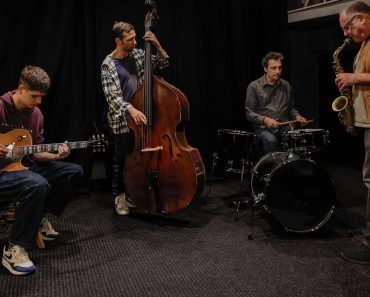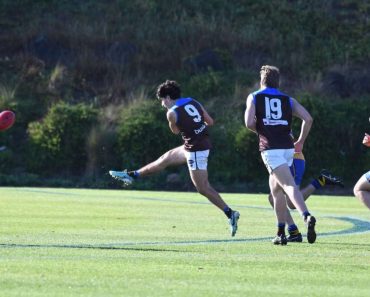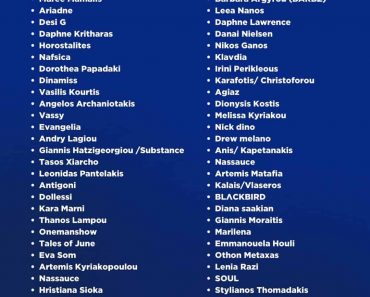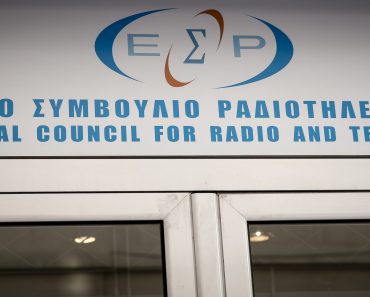A few years ago, Penleigh and Essendon Grammar School (PEGS) discussed the growing demand to practically support multiculturalism and students sharing their heritage on a creative level.
From that discussion came the expected multicultural days and students speaking about their heritage, language, or wearing a traditional costume and bringing a dish to share.
It became clear that there was a lack of cross-cultural exchange in the creative arts and music department.
PEGS have a long tradition of being home to both a Western classical orchestra, the traditional symphony orchestra, and an orchestra that plays Chinese classical and folk music, eastern classical.
One day, Year 9 student Raphael Katsapis asked a question, and that has now paved the way for a new ensemble.
“The natural progression was to invite all students to share their heritages and celebrate their heritages, all students, but also really with a keen eye to the Greek community,” instrumental music teacher Dr Nela Trifkovic told Neos Kosmos, who is of Bosnian background but well aware of the significant Greek community in Melbourne.

“We put out a few calls to the students and had quite a few students respond but I would say it was one particular students’ courage, Raphael Katsapis, to come forward first.
“He’s my singing student and I know that he plays the piano, but he was the first person to come forward with the bouzouki and say, ‘is there a place for me in this ensemble?’”
She said that Raphael is not only a proud Greek, but he is skilful and sings, speaks the language and plays the bouzouki to quite a high level.
Raphael has quickly learned his way around the instrument, having been gifted one for the first-time last Christmas but started lessons in March this year.
“I haven’t necessarily assimilated into the Australian culture so; I possess a strong bond to my Greek heritage and this bond influences me to have and still listen to Greek music extremely frequently,” he told Neos Kosmos.
He is fond of Zeibekiko and Rebetiko, which he said is for the fact that “it has meaning and symbolism which needs to be interpreted to understand the intentional message of the piece.”

“Initially, my vocal teacher Nela Trifkovic informed me that there is a cultural ensemble where individuals could bring instruments into the ensemble of their respective culture.
“The fact that I had an opportunity to play my cultural instrument to an audience, it inevitably influenced me to join and thus be where I am now with the bouzouki.”
Raphael is now passionate about playing the bouzouki and said he hopes to play it for “years to come”.
He intends to play at weddings and events when he’s older and would love to do it alongside his brother who plays the violin.
A realisation by teachers and students that Greek and Chinese music were similar with the scales, or modes, they are written in the Chinese and Multicultural Orchestra was formed.
This year the group presented a multicultural arrangement of the Greek song ‘Apo Xeno Topo’, played on Chinese instruments with Raphael as a vocal and bouzouki soloist.
Conductor of the ensemble Dong Ma said he has enjoyed and found excitement in incorporating Greek music and discovering the similarities.
He also said Raphael has been a great addition to the ensemble.
“I remember giving him a fretted family instrument chart of one famous Chinese song and he played it on the bouzouki immediately,” he told Neos Kosmos.
“He played with a great charm and a deeply personal interpretation.
Ma described Raphael as “a natural” who “demonstrates that music has no borders with his approach to the ensemble repertoire, while also bringing his Greek cultural and musical pride to the Greek songs that we learned.”

Trifkovic said during the first performance, Greek Australians in the audience clapped along and sang, and the Chinese Australian parents looked proud, clapping for their children that were playing on the instruments.
“I think it was connecting the audience in a particular way, which is the primary role of folk music, to really bring more of unification.”
This unification is happening in the classroom too, where Rafael has taken a musical interest to the Chinese instruments.
Fellow student Chris Yan, who plays a Chinese instrument similar to the bouzouki, has thus taken interest in Raphael’s instrument.
Staying in the classroom, Trifkovic said she is also learning Greek through teaching Raphael.
She also recalled sharing with the students in class that you need to play with love, and used the Greek word ‘meraki’ because Bosnians have a similar word ‘merak’.
“I was really trying to say to them to play this song, you have to find your own meraki and put it into it and then it took half a class to explain what Meraki was,” she laughed.
Now after this initial venture that has brought Greek and Chinese music together, PEGS are growing the ensemble and are inviting others to come and add their own cultural touch.
Whether they play a non-Western or Western instrument – they are interested in music from around the world.







